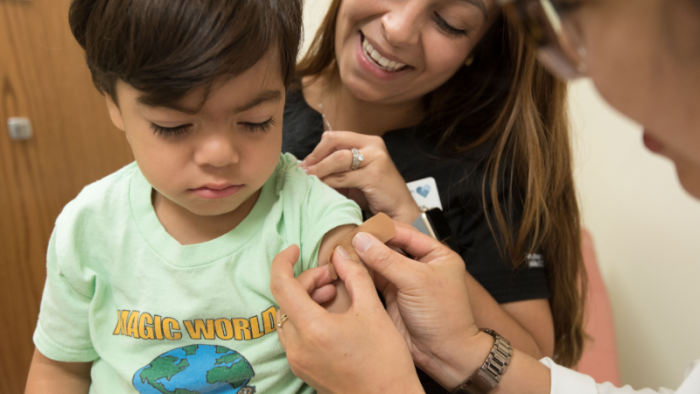
Caring for infants and children with PI
When a child is diagnosed with a primary immunodeficiency (PI), it can be overwhelming for both the child and their family. IDF has compiled resources and guidance to help children and their caregivers thrive.

When a child is diagnosed with a primary immunodeficiency (PI), it can be overwhelming for both the child and their family. IDF has compiled resources and guidance to help children and their caregivers thrive.

Stay informed of the latest immunization recommendations for children living with PI.

To protect their developing immune systems, infants with severe combined immunodeficiency (SCID) need careful attention and special care. Get guidance on breastfeeding as well as pre-treatment and post-treatment isolation periods.

As a caregiver, you have your own needs. Taking care of yourself helps you take care of your child. Don’t be afraid to reach out to your friends, family, or network for support.
Your child with PI relies on you to be their advocate when it comes to everything from school to healthcare. Learn how you can best support them.

Whether you are a teen or young adult, or a caregiver to a child living with PI you’ll find articles, videos, podcasts, and more to help deepen your understanding of PI.
Support groups with peers help people with PI and their caretakers find community in their local area.
IDF Friends connects caregivers of children living with PI with other caregivers.
Patient education programs are crucial for helping children, caregivers, and adults understand PI.
This page contains general medical and/or legal information that cannot be applied safely to any individual case. Medical and/or legal knowledge and practice can change rapidly. Therefore, this page should not be used as a substitute for professional medical and/or legal advice.
Adapted from the IDF Patient & Family Handbook for Primary Immunodeficiency Diseases, Sixth Edition.
Copyright ©2019 by Immune Deficiency Foundation, USA
Receive news and helpful resources to your cell phone or inbox. You can change or cancel your subscription at any time.